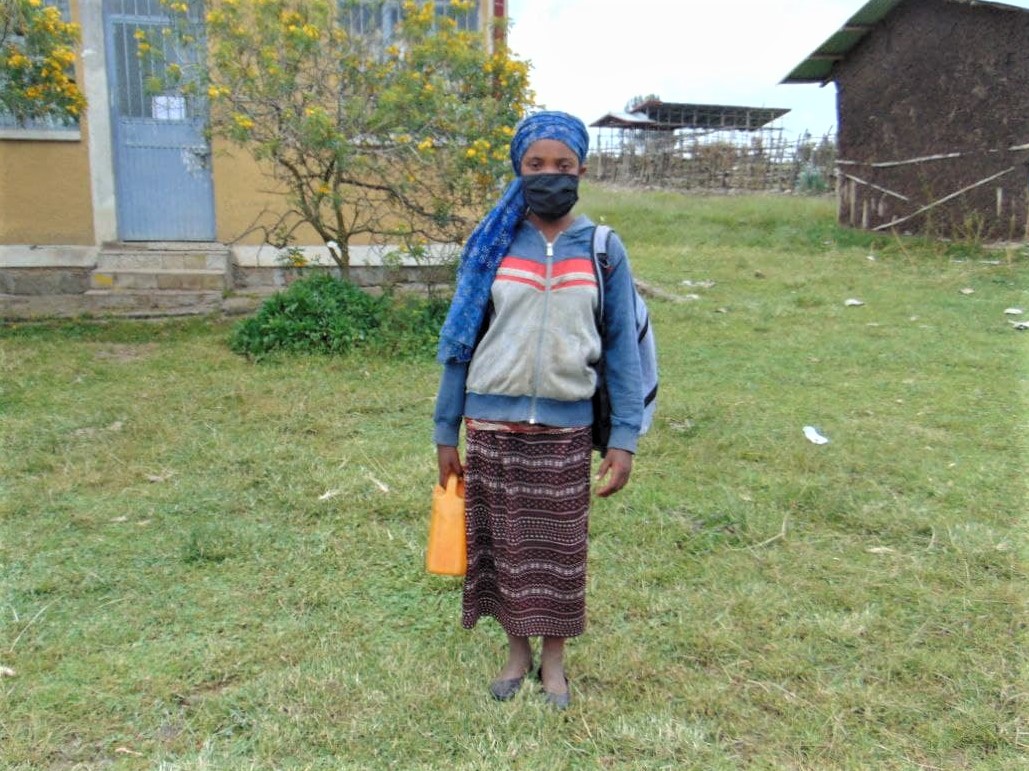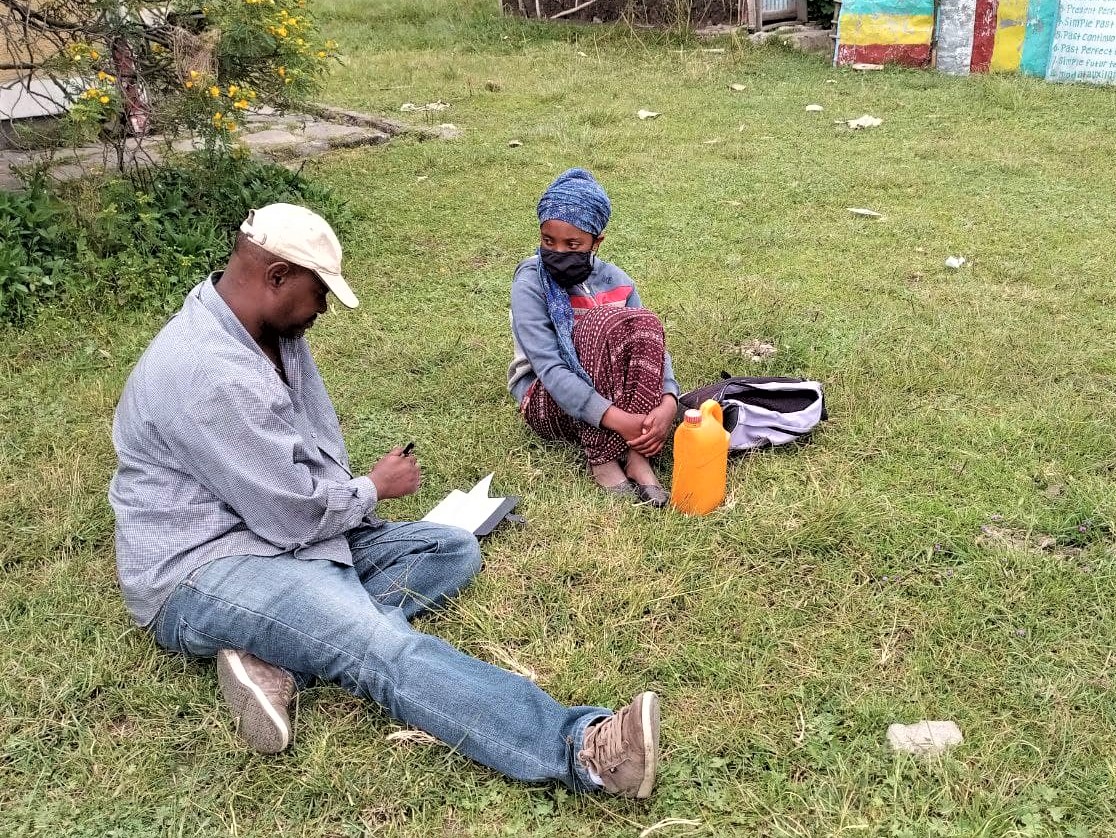13. October 2021
Authors: Tigist Gebremedhin (WASH Coordinator at HEKS/EPER in Ethiopia); Zelalem Mitiku (Program Manager at Enhanced Rural Self Help Association ERSHA)
Photo: Woret Shewangezaw, a 6th grade student at Hedase Primary school in Ethiopia, carrying her daily water supply for drinking and handwashing
Photo Credits: ERSHA
The Amhara Region in Ethiopia: Background
The Amhara region is the second most populous region in Ethiopia. Nearly 84% of the population reside in rural areas and are engaged in agriculture. Although, technically, there is enough water available in the Amhara region, the population and institutions, such as schools, lack access to clean and safe drinking water. The sources of water for drinking for the majority of the people are unprotected springs and manual hand dug wells. Major WASH related challenges in the region include: lack of access to safe water, poor sanitation and hygiene practices, high workload on women and children to fetch water leading to school dropout, high incidences of water borne diseases and low community awareness on the relationship between water sanitation and health.
The “Angolelana Tera WaSH Project” of HEKS in Ethiopia
To complement the government’s effort of increasing access to improved WASH services, Swiss Church Aid (HEKS) in collaboration with a local NGO partner, Ethiopian Rural Self-Help Association (ERSHA), is implementing the “Angolelana Tera WaSH Project” in the North Showa Zone of the Amhara Region. The project involves the construction of a multi village water scheme that will create access to safe water supply for more than 8,600 people and 2,200 students in 3 primary schools. It also creates safe water access for 2 health care facilities. The project is in progress and the construction of the water scheme is ongoing.
Photo: Hedase Primary School, Amhara Region, Ethiopia
Photo Credits: ERSHA
Strenuous Everyday Routine at Hedase Primary School: Children Carry Water to School for Drinking and Handwashing
Woret Shewangezaw is a 6th grade student at Hedase Primary school. She is 14 years old and lives in Tsigereda Kebele (North Shoa Zone, Amhara Region). Hedase Primary school is one among the three target schools of the HEKS’ Angolelana Tera WaSH Project.
Woret said the school is far from her village, and she walks one hour (one way) every day to her school. When Woret talks about her school days, she says:
“My parents are farmers and only have a low income. I have four brothers and one sister. Since we don’t have access to clean water at our school, every school day, I have to bring 2-3 liters of water from my home to school. The water that I take to school is not safe since it is collected from an unprotected spring. At the same spring, also our cattle drinks water. Usually, I share the water that I take to school with my younger brother, Abreham, who is a 5th grade student. Since we use this water both for drinking and hand washing, it is not sufficient, and we always have to use it with great care. Before we take our lunch, we use a very small amount of water to wash our hands.”
Woret also mentions the increased challengers for girls regarding menstrual health and hygiene (MHH) and she adds:
“The lack of water in the school has a profound negative impact on girls’ education. Due to lack of water in our school, we girls have a hard time in getting water for hand washing and keeping our hygiene, especially during our menstruation. Girls like me carry water not only to ourselves but also to our little brothers and sisters.”
Swiss Church Aid/HEKS and ERSHA will extend the water scheme, which is under construction, for 3 km, so that it can reach the Hedase School and create access to safe water for the students and teachers there. Woret said that she and the school students are happy and are looking forward to the water scheme to reach their school compound. In the meantime, the parents and teachers encourage the children to take water to their schools for drinking and hand washing. The parents and the teachers said although the amount of water they bring to the school is very small, it is important that the children wash their hands, specially in this time of the COVID-19 pandemic.




